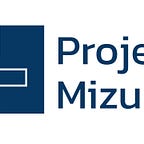Who is Project Mizu?
Since our launch of Water-Ag Adaptation Playbook, a number of climate investors, entrepreneurs, researchers, and policymakers reached out to us.
One of the common questions they asked was “Who are you? How come you create over 100-page report on this underexplored area?”
Here, we are sharing how we started and evolved as a global, interdisciplinary team of researchers.
1. Who We Are:
Project Mizu is an independent, nonprofit research group led by Agriculture and Water industry professionals studying at Stanford Graduate Schools of Business, Sustainability, and Engineering.
As a crop trader in Kansas, water engineer in Yokohama, and forestry financier in Nairobi, each of our lead authors experienced firsthand that the impact of climate change is most acutely felt through water stress and shifting weather patterns.
Such risks are crucial for agriculture, which accounts for 70% of our freshwater use. As much as climate mitigation is urgent, we are committed to accelerating adaptation by responding to unprecedented shifts in weather patterns and water availability.
Many share the same concerns. Over the summer of 2023, we formed an interdisciplinary team of 32 water engineers, agriculture experts, management consultants, and investment professionals to map the adaptation solutions in water and agriculture.
To some people’s surprise, we gathered the team out of a viral Tweet by Tomo Kumahira, one of the lead authors who had worked in climate startup space for years. After reading through messages from applicants, Ryo, Tomo, and Charlie, decided to shift from a traditional research team model with a handful of core members to a working group model with diverse discussion contributors.
2. Interdisciplinary Team for Interdisciplinary Problem-Solving:
Known as “Water-Agriculture Nexus,” the adaptation in agriculture and water systems required us to connect the dots across different expertise and experience. We needed to understand water engineering, genetical modification, legal structures, public infrastructures, policy interventions, and financial instruments to name a few. For the proposal to be relatable, we felt the need to work with both researchers and practitioners with diverse backgrounds.
We believe that it is imperative to form an interdisciplinary team from Day 1 in order to solve interdisciplinary problems. Our diverse team, including consultants, medical doctors, and WASH experts, echoes the interdisciplinary nature of the challenges we tackle.
3. Evolving Process of Mizu Research:
With over 15 weeks of intense meetings and 5 months of research, we brought together unique insights from various industries to develop a holistic view of these issues.
We started from building a library of existing solutions, which later became “Solution Taxonomy.” Soon, we realized there was no such thing as a “Water and Agriculture problem.” Instead, we learned to see complex system dynamics that make adaptation in agriculture more nuanced and, more often than not, challenging.
Over the first 8 weeks, the team’s weekly debate evolved to the future of Water-Ag Adaptation. We went through scenario-thinking workshops to identify key drivers and streched our collective imaginations for hours. That was, we believe, the only path to see a vision of the future that none of our experts and practitioners could see alone. Our “Playbook” captures conflicting nuances and stakeholder dynamics, while highlighting 3 simple steps to accelerate adaptation in agriculture and water resource management.
4. Our Advisors:
We are advised by the world’s leading experts across water, agriculture, and adaptation.
Professor Buzz Thompson at Stanford Law School/Doerr School of Sustainability teaches “Business of Water” class as a global expert in water resource management. At Stanford, he is also known as the early founders of Woods Institute for the Environment. Tomo and Charlie, two of the lead authors, took his class and started this initiative, inspired by his interdisciplinary approach to water.
Taka Hagiwara, Representative in India, Food and Agriculture Organization of the United Nations (FAO), has served as development expert in agriculture across Latin America, South Asia, and Africa for decades. His experience in advising governments and multilateral development banks helped contextualize our research.
Professor Yoshihide Wada of Climate and Livability Initiative and Center for Desert Agriculture, King Abdullah University of Science and Technology (KAUST), further expanded our understanding of scholarly research in “Water Energy Food Nexus.” As a contributor to IPCC’s AR5/6 research, his experience guided us in the broad and diverse research in agriculture adaptation in water-scarce environments.
Katie Vogelheim, Science Council Advisory Board Member at Conservation International, offered mentorship through Stanford’s Ecopreneurship Program, to dig deeper in the climate entrepreneurship space.
5. Want to Learn More?
Here is the link to our Water-Agriculture Adaptation Playbook.
For those who want to take a quick skim first, you can read our Summary Medium Post.
We will continue to share our insights on this Medium and Linkedin. Follow us to stay updated!
